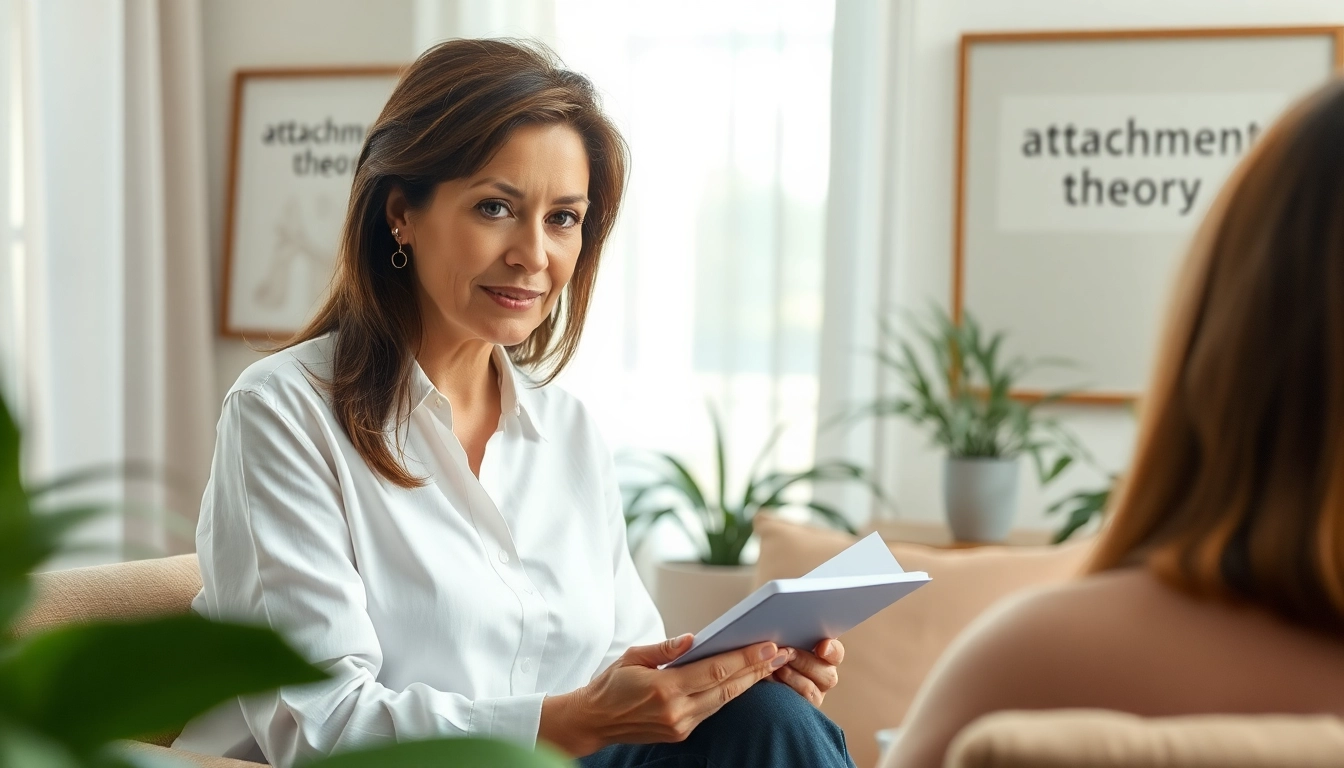
Introduction to Attachment Theory
Attachment theory offers a critical framework for understanding how early emotional bonds between children and caregivers shape their relationships throughout life. Developed in the mid-20th century by British psychologist John Bowlby, this theory elucidates how these early connections impact an individual’s emotional and social development. Today, many therapists and psychologists specialize in attachment theory to provide tailored support for individuals struggling with relational difficulties. An attachment theory specialist can help clients navigate these complex dynamics for healthier relationships and mental well-being.
What is Attachment Theory?
Attachment theory is a psychological model that explains how humans form emotional bonds. According to Bowlby, the bond between a child and their primary caregiver is fundamental to developing emotional security, self-regulation, and social relationships. The attachments formed in childhood serve as templates for future interactions, influencing how individuals respond to intimacy, conflict, and trust in their adult relationships.
The Importance of Attachment in Relationships
Attachment plays a critical role in shaping relational patterns. Securely attached individuals are often more comfortable with intimacy and interdependence, fostering healthy bonds rooted in trust and mutual support. In contrast, those with insecure attachments may exhibit patterns of avoidance, anxiety, or ambivalence, which can create challenges in their relationships. Understanding these dynamics is essential for healing and growth, making the role of an attachment theory specialist vital for those seeking to improve their relational health.
How Attachment Styles Affect Behavior
Attachment styles—typically categorized as secure, anxious, avoidant, or disorganized—directly influence an individual’s behavior in relationships. For instance:
- Secure Attachment: Individuals with secure attachments tend to express their needs openly and respond to others in a caring manner. They can maintain healthy boundaries and are comfortable with both closeness and independence.
- Anxious Attachment: Those with anxious attachment often crave closeness but fear rejection, leading to clinginess or jealousy. Their self-esteem may be closely tied to their relationships.
- Avoidant Attachment: Avoidantly attached individuals may distance themselves emotionally from their partners, often rejecting intimacy to maintain a sense of independence.
- Disorganized Attachment: This style reflects a chaotic mix of avoidance and anxiety, often stemming from trauma or inconsistent caregiving. Individuals may struggle with relationships and self-regulation.
Identifying Attachment Styles
Secure vs. Insecure Attachment Styles
Recognizing secure and insecure attachment styles is key to understanding interpersonal dynamics. Secure attachment leads to balanced, nurturing relationships, while insecure styles can manifest in various maladaptive behaviors. For example, an individual with an anxious attachment may experience heightened sensitivity to their partner’s moods, interpreting neutrality as rejection. In contrast, a person with an avoidant style might dismiss the importance of emotional closeness, viewing intimacy as a threat to independence.
Recognizing Your Own Attachment Style
Understanding your attachment style can provide insights into your relationship patterns. Reflect on previous and current relationships, noting how you respond to intimacy and conflict. Journaling and self-assessment quizzes can be helpful tools, but working with an attachment theory specialist often provides deeper insights and guidance.
Impact of Childhood Experiences on Attachment
Childhood experiences significantly influence attachment styles. Children who receive consistent emotional support and care typically develop secure attachments. Conversely, those exposed to neglect, inconsistency, or trauma may adopt insecure attachment strategies, leading to challenges later in life. Identifying these early experiences can illuminate current relational patterns, helping clients to address unresolved issues.
The Role of an Attachment Theory Specialist
Understanding the Therapist’s Approach
An attachment theory specialist utilizes their expertise to guide clients through understanding and modifying their attachment styles. Their approach is often empathetic and grounded in evidence-based techniques that prioritize connection and healing. The therapist seeks to create a safe environment where clients can explore their emotional responses and relationship patterns without judgment.
How a Specialist Can Help Clients
These specialists employ various strategies to assist clients, including:
- Assessment: Identifying attachment styles through interviews and questionnaires.
- Education: Teaching clients about attachment theory and its implications for their lives.
- Therapeutic Techniques: Using modalities like cognitive-behavioral therapy (CBT), dialectical behavior therapy (DBT), or emotion-focused therapy (EFT) to facilitate change.
- Skill Building: Helping clients develop skills for secure attachment, such as effective communication and emotional regulation.
Qualifications and Training of Experts
Attachment theory specialists typically hold advanced degrees in psychology, social work, or counseling and have undergone additional training in attachment-focused therapy. Professional memberships and certifications from recognized organizations can further validate their expertise. Clients seeking assistance should verify their therapist’s credentials to ensure they are receiving competent, informed care.
Techniques Used by Attachment Theory Specialists
Common Therapeutic Approaches
Attachment therapy often incorporates various therapeutic techniques tailored to the client’s specific needs. Some commonly employed approaches include:
- Attachment-Based Psychotherapy: Focusing on understanding and modifying attachment patterns through relational dynamics.
- Emotion-Focused Therapy: Assisting clients in processing emotions related to past attachment experiences.
- Trauma-Informed Care: Recognizing the influence of trauma on attachment and utilizing therapeutic strategies that address trauma’s impact.
Using Attachment Theory in Couples Therapy
In couples therapy, understanding attachment styles can be transformative. Specialists guide partners in recognizing their attachment patterns and the impact these have on their relationship. Techniques may include creating secure bases, enhancing emotional expression, and developing effective conflict resolution strategies. As couples navigate their dynamics, they learn to appreciate and respond to each other’s attachment needs.
Integrating Mindfulness with Attachment Work
Mindfulness can be effectively integrated into attachment therapy to foster greater self-awareness and emotional regulation. Mindfulness practices help clients become more attuned to their emotional responses and the underlying beliefs that shape their behavior in relationships. Therapists may incorporate mindfulness techniques to support clients’ growth and healing, promoting secure attachment through increased presence and self-acceptance.
Finding an Attachment Theory Specialist
Questions to Ask When Seeking Help
When seeking an attachment theory specialist, it is essential to ask questions that align with your needs and expectations. Consider inquiring about the following:
- What experience do you have working with attachment issues?
- What therapeutic approaches do you use?
- How do you assess and evaluate attachment styles?
- Can you provide examples of how you have helped clients with similar concerns?
How to Determine the Right Fit for You
Finding the right attachment theory specialist involves both qualifications and personal compatibility. Schedule initial consultations with potential therapists to gauge whether their approach resonates with you. Consider factors such as their communication style, perceived empathy, and ability to create a safe therapeutic environment. Your comfort and trust in the specialist are crucial for a successful journey.
Resources for Finding Qualified Specialists
Several resources can aid in the search for a qualified attachment theory specialist:
- Professional directories that list therapists by specialization.
- Recommendations from healthcare providers or trusted community members.
- Online platforms that enable clients to filter therapists by specific expertise.
Taking the time to research and evaluate specialists can greatly enhance the therapeutic process, leading to more effective outcomes.





